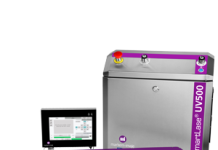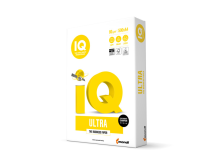Armand Schoonbrood, COO at Mondi Corrugated Packaging, explains what it takes to create truly innovative packaging, illustrating a number of examples.
Over the past decade the packaging industry has undergone a massive change due to the rise of e-commerce, the growing importance of shelf-ready packaging and stringent requirements for logistics packaging. With traditional, volume-driven stationery retail and distribution in decline, the packaging industry now has to accommodate individual product sales via smartphones and e-commerce platforms.
Concurrently, the huge range of products available on the supermarket shelves demands space-efficient yet eye-catching solutions. What is more, in the industrial sector, packaging manufacturers have to carefully assess when to use lightweight and when to use heavy-weight materials in order to meet the high standards of global logistics while also minimising the use of natural resources.
These trends have their ups and downs for the packaging industry – on the one hand, retail and logistics now consider packaging as more than just a commodity, but rather as a tool to appeal to customers, inform them about their products and create a long-lasting experience.
On the other hand, packaging manufacturers need to come up with creative designs that are aesthetically pleasing, but also transport the product safely and cost-effectively to its destination. Above all, packaging must be sustainable, using materials that are light, recyclable, reusable or compostable. Fibre-based packaging, as a renewable material, is hard to beat.
Thinking outside the box – in order to innovate it
Most recently, the World Star Awards, a global competition that recognises innovative packaging solutions, honoured seven of Mondi Corrugated Packaging’s solutions. Among the awarded products was the Glass7Box, a packaging solution designed for Riedel, a company with a long-standing tradition and expertise in the production of premium wine glasses.
Glass7Box is a universal glass packaging, unique in that its compartments can fit seven different types of glasses without compromising on product protection. This design is the answer to demand for packaging solutions that are suitable for a whole range of products, which is also beneficial in terms of sustainability, including material and resource efficiency.
Cindy Stephan, project manager at Riedel, commented, ‘The Glass7Box is a real breakthrough in terms of packaging for Riedel, as it reduces our need to hold large quantities of different packaging. Its ability to hold seven different glass formats ensures faster product changeovers where production is concerned, and we also benefit from the economies of scale associated with bulk orders. Crucially, the product does not compromise on product protection and it also feeds directly into our own sustainability initiatives.’
Focusing on sustainability, Mondi’s side support product won an award in the Transit category for its considerable contribution to reducing CO2 emissions in transit packaging. Developed by Mondi Tire Kusan in Turkey, the product is a corrugated cardboard corner insert which acts as a corner support when transporting heavy items. The new product replaces EPS foam filler and offers far better impact absorption capabilities due to its hollow structure – a fact that has been verified in official customer drop-tests. Where corrugated board is substituted for foam, some 86% less warehousing space is required to store it.
In addition, its production produces 56% less CO2 when compared to EPS, while up to 81% less CO2 is produced in the transportation of products. For example, where EPS allowed 144 pieces of white goods to be transported on a pallet, some 752 are possible using side support, reducing the number of trucks required from 347 to just 67 per year.
Another example of a successful innovative partnership comes from a customer in the automotive sector. In an attempt to simplify the transportation of valuable but heavy goods, Mondi and Scandinavian partner aPak AB collaborated on the ‘Simple Sphere’ project for a Swedish car manufacturer, which received both a WorldStar Award and a ScanStar Award.
Mondi developed transport packaging for car bonnets, which are exported from Sweden to China. The judges, and the customer, were impressed by the innovative twist-lock construction for extremely fast set up in less than 30 seconds without screws, glue or tape. In addition, the new heavy-duty cardboard material is lighter than the previously used wooden crates; withstands humidity and condensation; and features a unique anti-corrosion solution using patented VCI technology. As a result, the ‘Simple Sphere’ offers shorter assembly and dismantling times and is an environmentally friendly alternative to wood crates.





















